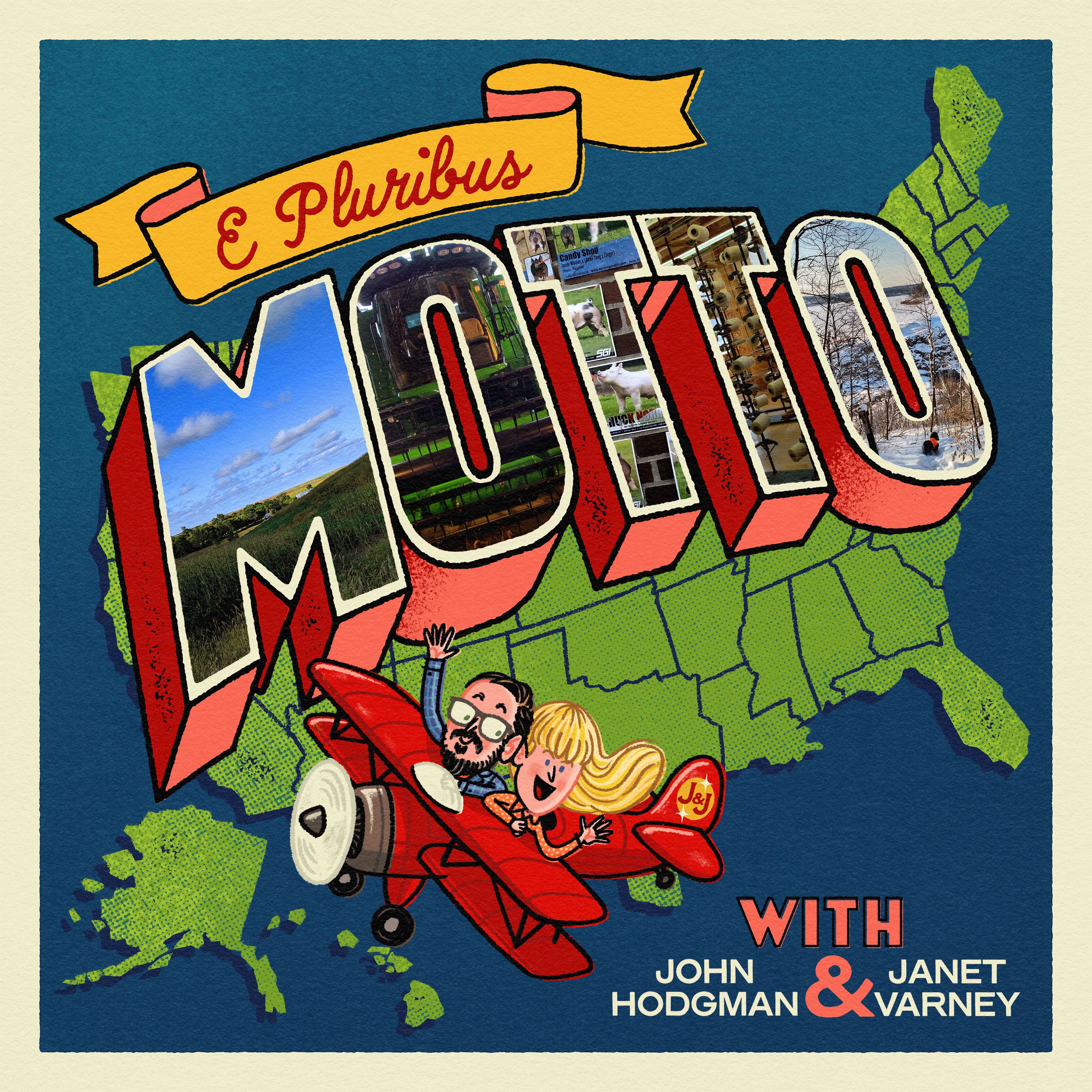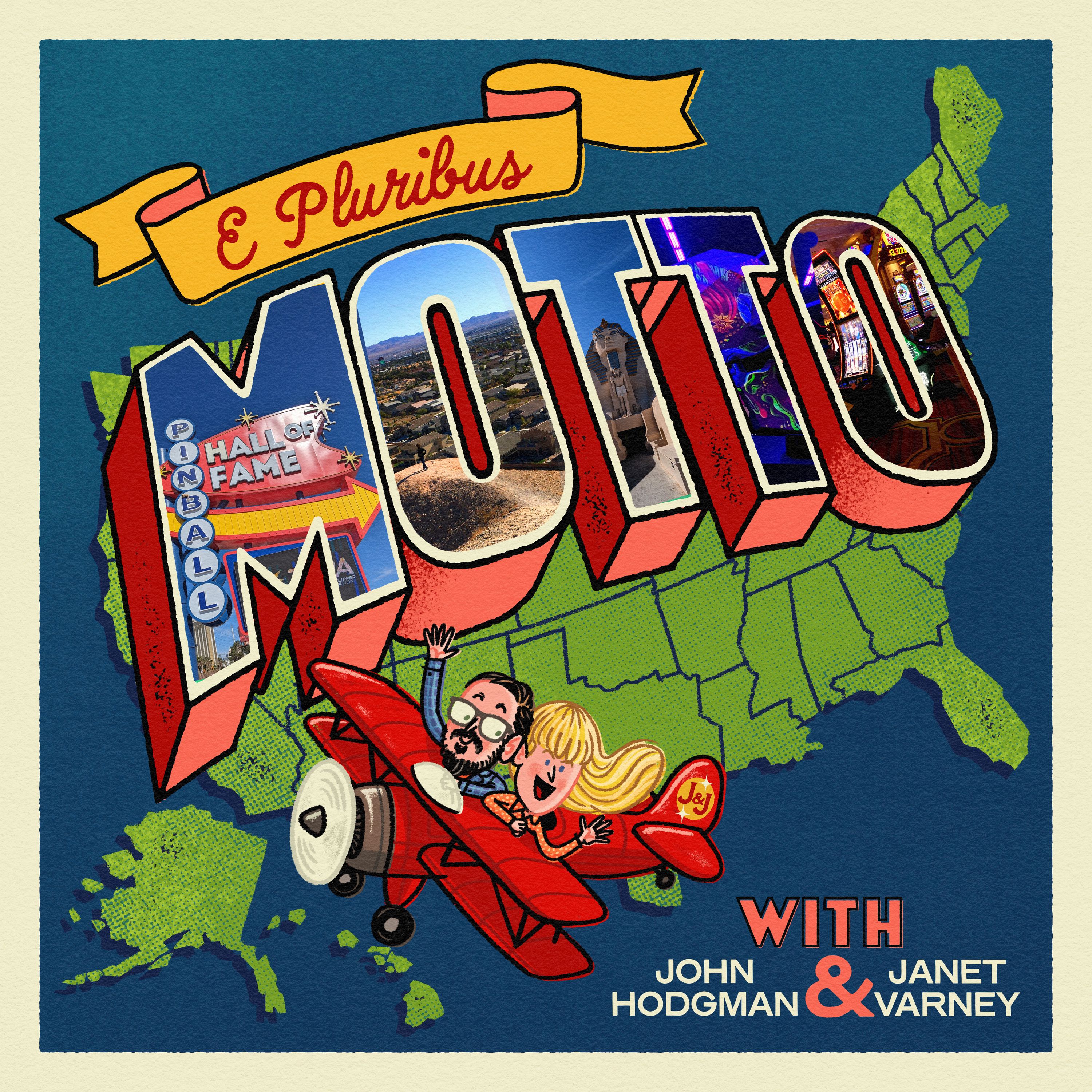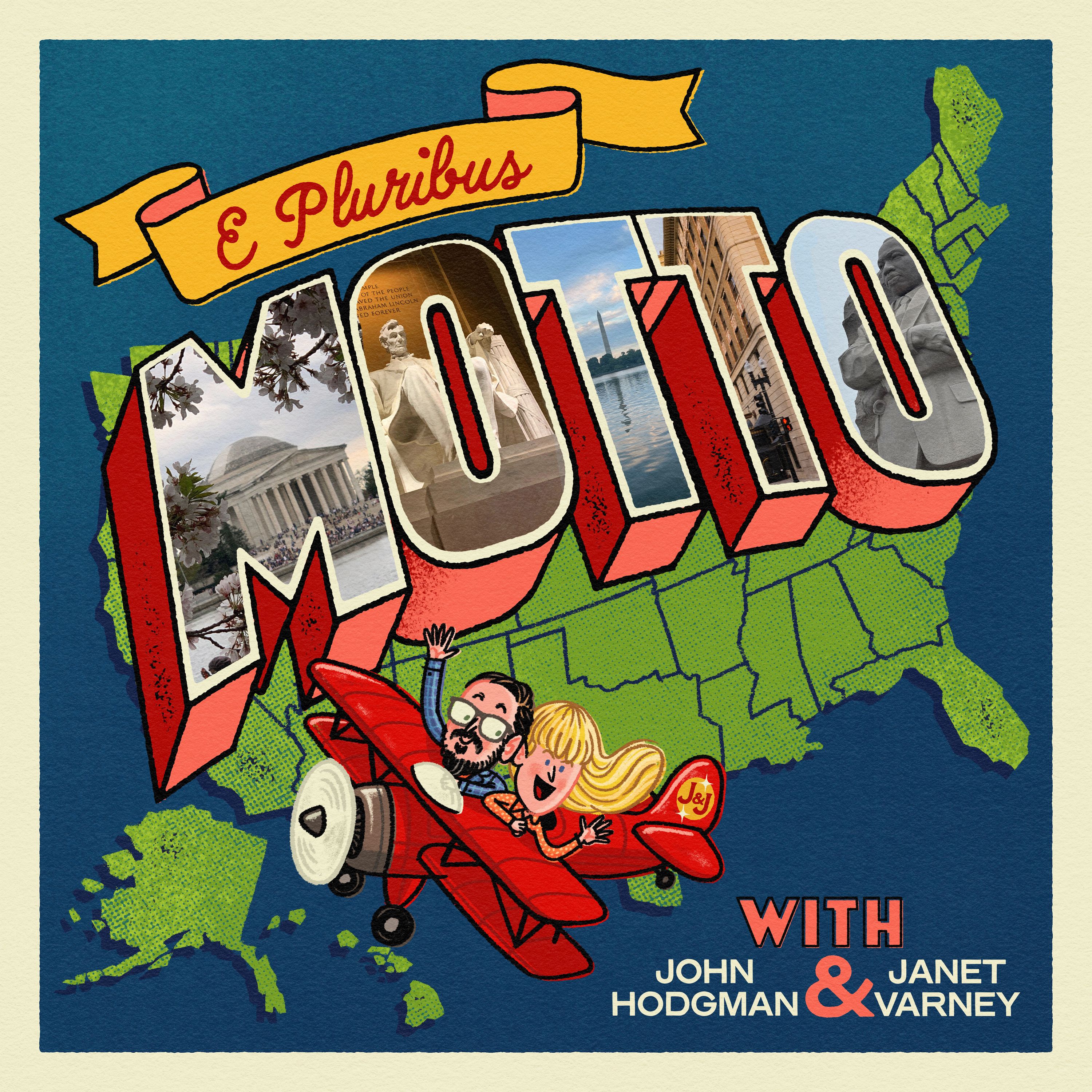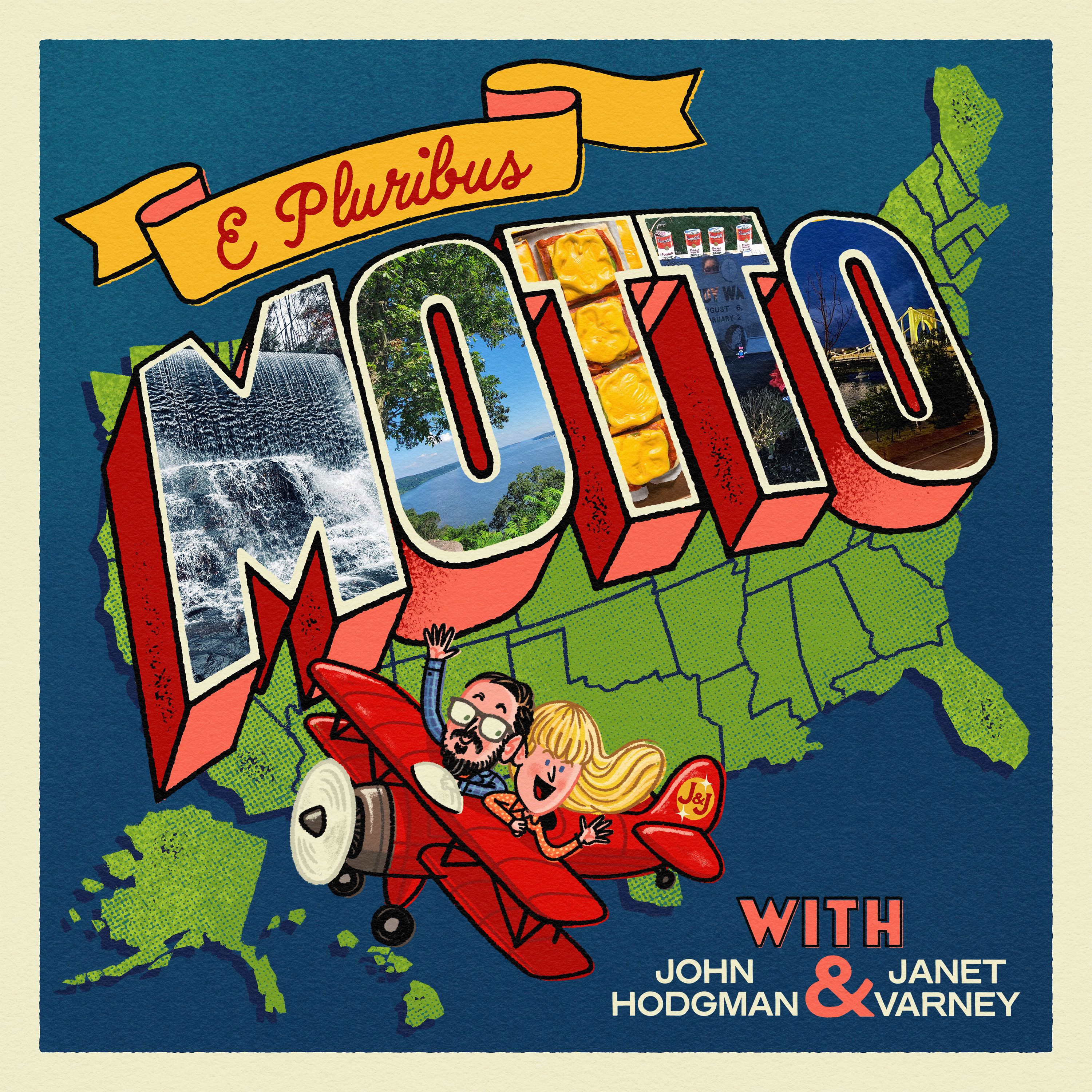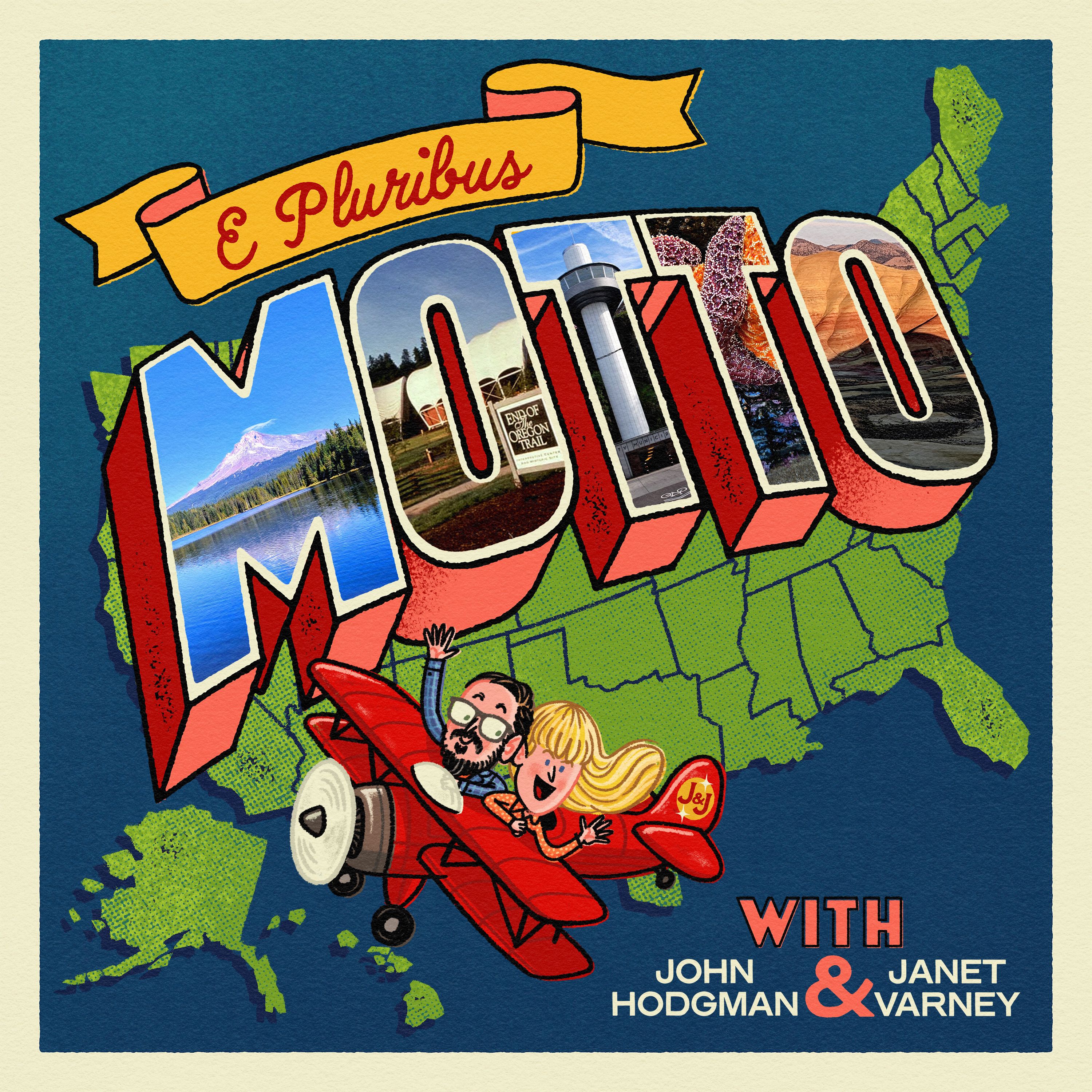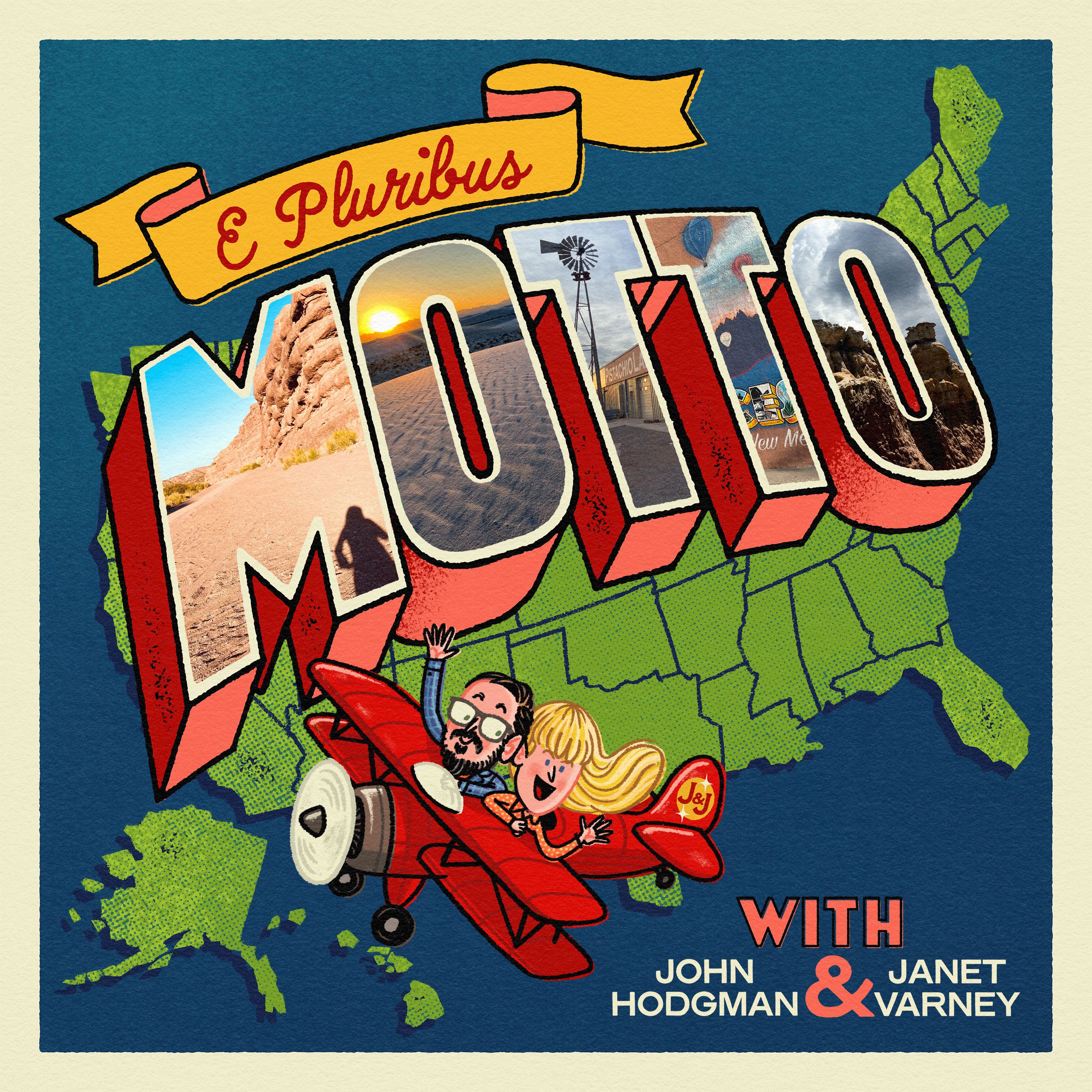Episode 17: Iowa- “Our liberties we prize and our rights we will maintain.”
Janet Varney and John Hodgman are on to the Hawkeye State! And while there are some very respectable hawkeyes to take sight of, our hosts will also talk about some vaguely disturbing Hawkeyes as well (sorry Herky!).
Press play and read along
Transcript
Transcript is processing—check back soon.
E Pluribus Motto — Episode 17: Iowa- “Our liberties we prize and our rights we will maintain.”
